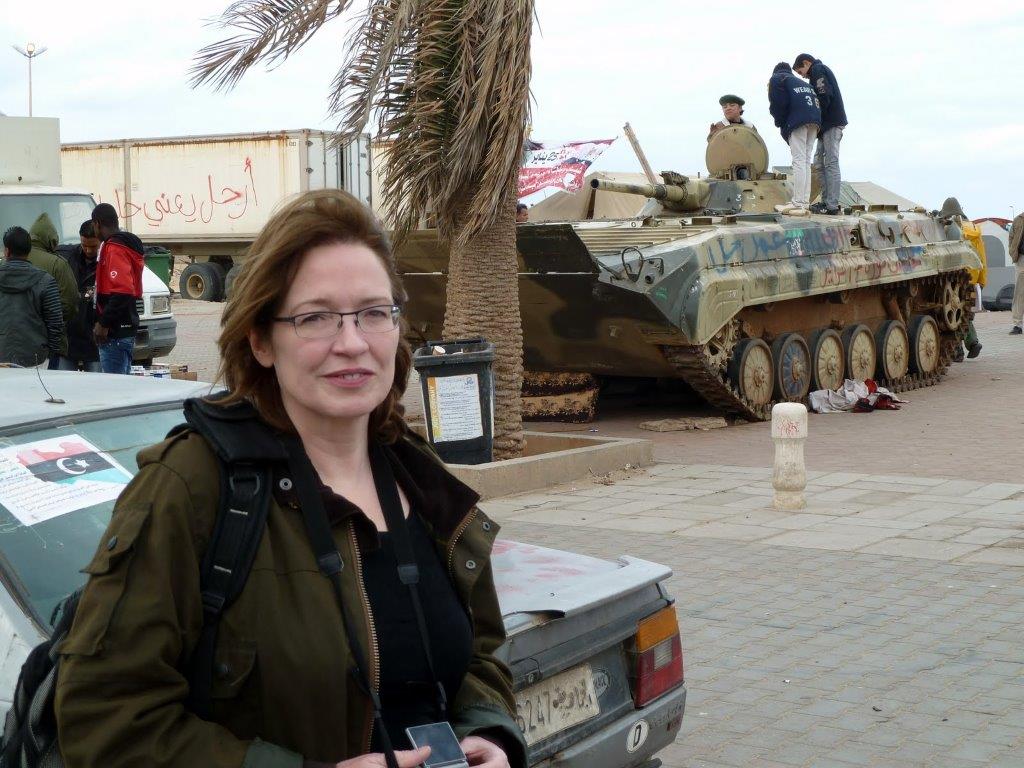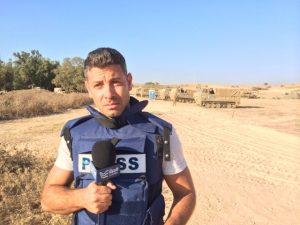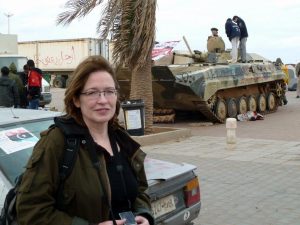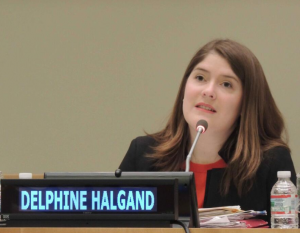Reporting in dangerous environments




Our journalists Elizabeth Arrott (VOA) and Yehia Kassem (Alhurra) participated in a Reddit AMA to answer questions about the hazards to journalists reporting on areas in conflict, with a focus on the Middle East and North Africa. They were joined also by Delphine Halgand, the U.S. Director of Reporters Without Borders. Below are a few highlights from the conversation, and we also invite you to read the entire conversation here:
When were you the most scared for your life while reporting?
Elizabeth Arrott:
There were a bunch of close calls – sniper fire from Gadhafi supporters holed up in a Libyan town, trigger happy Syrian soldiers at an isolated checkpoint, but I think the worst was surrounded by ordinary people at a market in a small town in Egypt. They thought my assistant and I were spies (the government had an ad campaign at the time making it seem that any foreigner asking questions were spies). We were trapped for about half an hour, but it seemed like forever. (and thanks Maddie_N for the same question)
Yehia Kassem:
It was one month ago when I was on the border between Israel and Gaza and a rocket fell next to me. Here is a youtube video from when that happened. http://youtu.be/AFIuIcZ_q_o
Do you think journalists can become targets in conflict zones? Especially in conflict zones where it benefits one or both sides for certain stories not to break?
Elizabeth Arrott:
There’s certainly that. Also, journalists, as we’ve seen repeatedly in Syria, are considered by some as high-value targets for kidnapping.
Yehia Kassem:
Absolutely. The problem is not the journalist, but extremists who do not agree with our reporting and feel that we are not showing their side.
Delphine Halgand:
In many conflict zones, professional and non-professional journalists are targeted. Just taking the example of Syria, since March 2011, more than 160 news providers have been killed in connection with their work. Dozens of journalists have been arrested and kidnapped. 40 Syrian news providers are currently detained by the regime. 8 Foreign journalists are currently missing or detained.
When people ask why journalists are targeted, I generally refer to the definition of freedom of information.
Freedom of information is the most important freedom because this is the freedom which allows all of us to verify the existence of other freedoms.
Do you think that social media has marginalized the role of on-the-scene reporting to any extent, because organizations can get their reports directly from locals?
Yehia Kassem:
Social media does get out the news faster, but there always needs to be a concern about accuracy. As journalists we always need to check the sources.
Elizabeth Arrott:
I think social media has helped everyone – including other journalists on the scene. It all helps build a bigger picture of what’s going on
Delphine Halgand:
Traditional and new media became complementary tools for professional journalists. New media are extremely useful to gather and circulate news. Citizens use social media as sound boxes of what is happening around them.
New media complicates immensely the traditional censorship on classic media. But traditional media and new media are equally used for propaganda.
__
You can learn more about threats encountered by journalists working for Voice of America, Alhurra, and other networks within the BBG here. For more information on VOA please visit insidevoa.com or voanews.com. For more information about Alhurra please visit alhurra.com.
